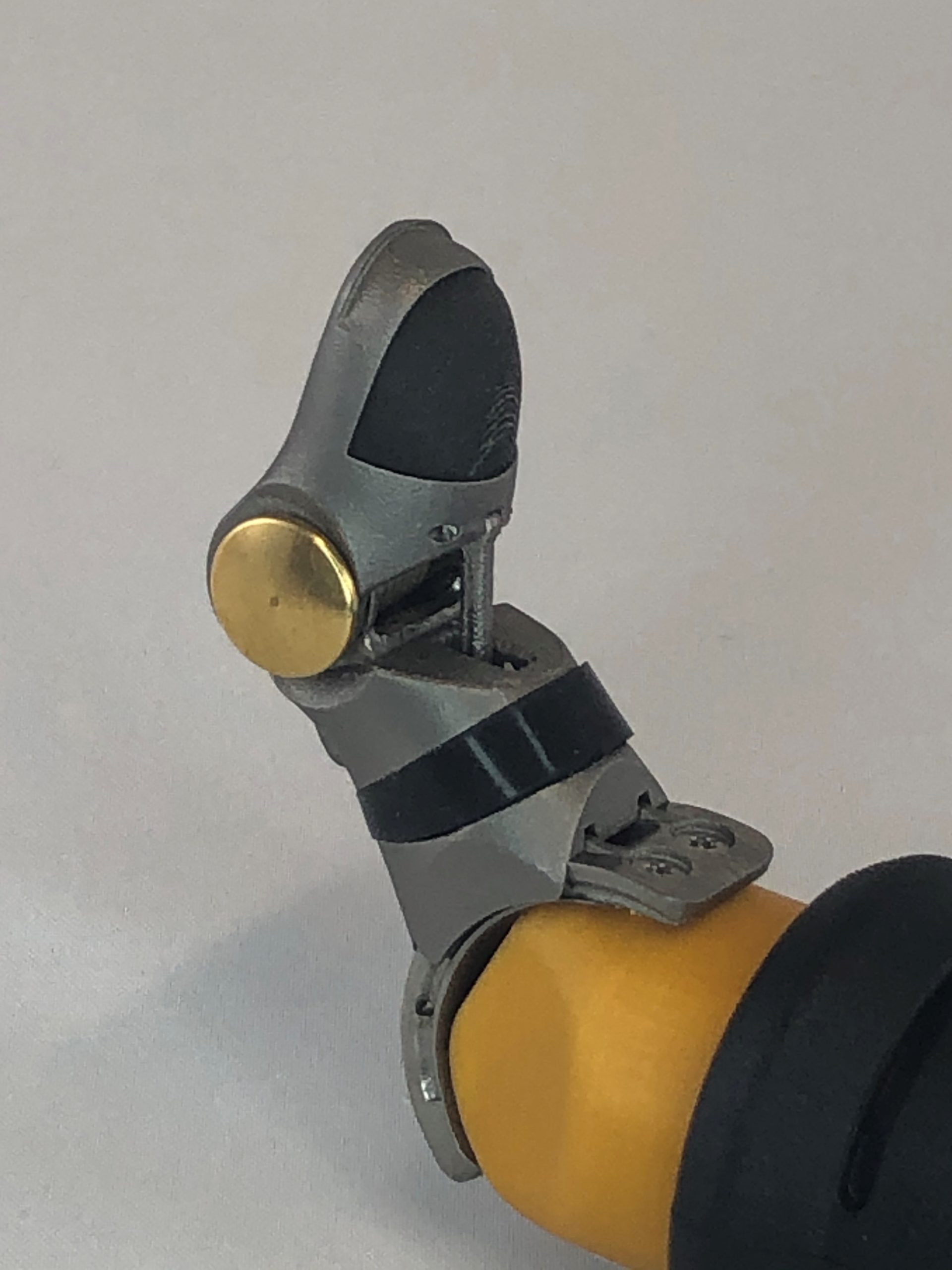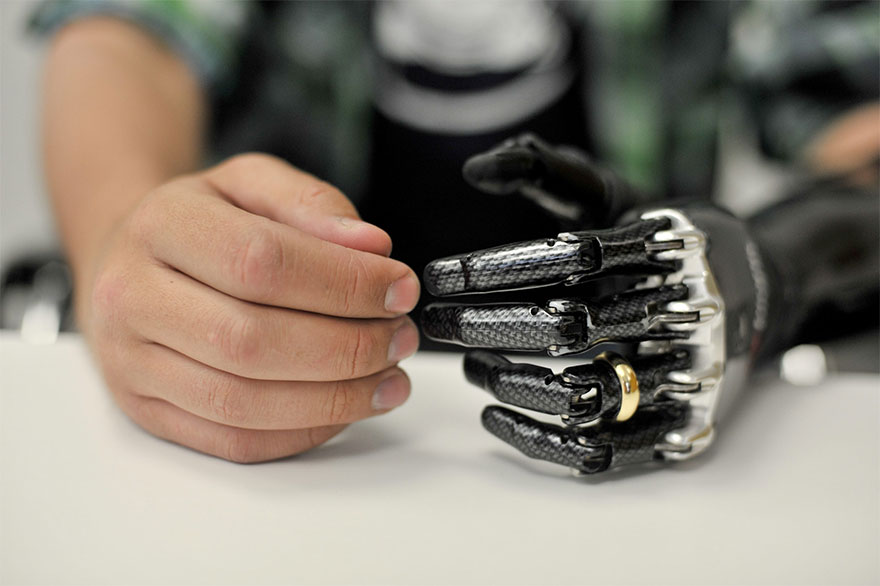In today's rapidly advancing world, point design prosthetics have become a beacon of hope for individuals seeking innovative solutions to mobility challenges. These cutting-edge prosthetic devices are transforming lives by offering unparalleled comfort, functionality, and customization options. If you or someone you know is exploring prosthetic solutions, understanding the nuances of point design prosthetics is essential.
Point design prosthetics represent a significant leap forward in medical technology, blending science, engineering, and patient care to create prosthetic limbs that mimic natural movement. This article delves into the intricacies of point design prosthetics, exploring their benefits, design principles, and the impact they have on users' lives.
As we journey through this comprehensive guide, you'll gain insights into how point design prosthetics are reshaping the prosthetic industry, empowering individuals to regain their independence and embrace life with confidence. Let's dive in and explore the fascinating world of point design prosthetics.
Read also:Tia And Tamera Mowry Net Worth A Comprehensive Guide To Their Success
Table of Contents
- Introduction to Point Design Prosthetics
- The History of Prosthetics and Point Design
- Design Principles of Point Design Prosthetics
- Materials Used in Point Design Prosthetics
- Benefits of Point Design Prosthetics
- The Role of Technology in Point Design Prosthetics
- Customization Options in Point Design Prosthetics
- Cost Considerations for Point Design Prosthetics
- The Impact on User Lives
- The Future of Point Design Prosthetics
Introduction to Point Design Prosthetics
Point design prosthetics are a specialized category of prosthetic devices designed to offer superior functionality and aesthetics. Unlike traditional prosthetics, point design focuses on creating limbs that not only enhance mobility but also align closely with the user's unique needs and preferences.
This approach emphasizes precision and innovation, ensuring that each prosthetic device is tailored to provide maximum comfort and performance. By leveraging advanced materials and technology, point design prosthetics have set a new standard in the industry.
What Sets Point Design Prosthetics Apart?
One of the key distinguishing factors of point design prosthetics is their emphasis on user-centric design. Here are some features that set them apart:
- Highly customizable options
- Advanced materials for durability and lightweight performance
- Integration of cutting-edge technology for enhanced functionality
- Focus on aesthetic appeal alongside functionality
The History of Prosthetics and Point Design
The history of prosthetics dates back thousands of years, with early civilizations crafting rudimentary devices to replace lost limbs. Over time, advancements in medicine, engineering, and materials science have transformed prosthetics into sophisticated tools capable of restoring mobility and independence.
Evolution of Point Design Prosthetics
Point design prosthetics emerged as a response to the growing demand for more personalized and effective solutions. By focusing on precision engineering and user feedback, these prosthetics have evolved to meet the diverse needs of modern users. Some key milestones include:
- Development of lightweight materials such as carbon fiber
- Integration of microprocessors and sensors for better control
- Advancements in 3D printing technology for custom designs
Design Principles of Point Design Prosthetics
The design of point design prosthetics is guided by several core principles aimed at maximizing user satisfaction and performance. These principles include:
Read also:Al Pacino Pregnant Unraveling The Myths And Facts
- User-centered design: Prioritizing the needs and preferences of the user
- Functional aesthetics: Combining form and function for a seamless experience
- Sustainability: Using eco-friendly materials and processes
Key Design Elements
Some of the key design elements that define point design prosthetics include:
- Modular components for easy customization
- Adjustable fittings for comfort and stability
- Integrated electronics for enhanced control
Materials Used in Point Design Prosthetics
The choice of materials is critical in the development of point design prosthetics. Modern prosthetics utilize a range of advanced materials to ensure durability, lightweight performance, and aesthetic appeal. Common materials include:
- Carbon fiber
- Titanium
- Medical-grade plastics
Advantages of Advanced Materials
These materials offer several advantages, including:
- Increased strength-to-weight ratio
- Improved durability and longevity
- Enhanced comfort and fit
Benefits of Point Design Prosthetics
Point design prosthetics offer a wide range of benefits that make them a preferred choice for many users. Some of the key advantages include:
- Improved mobility and independence
- Enhanced comfort and fit
- Customizable options to suit individual needs
- Integration of advanced technology for better control
Impact on Daily Life
Users of point design prosthetics often report significant improvements in their quality of life, with many enjoying greater independence and confidence in their daily activities.
The Role of Technology in Point Design Prosthetics
Technology plays a crucial role in the development and functionality of point design prosthetics. Innovations such as microprocessors, sensors, and 3D printing have revolutionized the industry, enabling the creation of more advanced and personalized prosthetic devices.
Key Technological Advancements
- Microprocessor-controlled joints for natural movement
- Sensors for real-time feedback and adjustment
- 3D printing for custom designs and fittings
Customization Options in Point Design Prosthetics
One of the standout features of point design prosthetics is the wide range of customization options available. From color and design to functionality and fit, users can tailor their prosthetic devices to meet their unique needs and preferences.
Popular Customization Features
- Color and pattern options
- Functional attachments for specific activities
- Adjustable components for optimal fit
Cost Considerations for Point Design Prosthetics
The cost of point design prosthetics can vary significantly depending on factors such as materials, technology, and customization options. While these devices represent a significant investment, many users find that the benefits far outweigh the costs.
Factors Affecting Cost
- Materials used
- Level of customization
- Technology integration
The Impact on User Lives
Point design prosthetics have a profound impact on the lives of users, offering them the opportunity to regain their independence and embrace life with confidence. Many users report improved physical and mental well-being as a result of using these advanced devices.
Testimonials from Users
Real-life testimonials highlight the transformative effects of point design prosthetics, with users sharing stories of renewed confidence and freedom.
The Future of Point Design Prosthetics
The future of point design prosthetics looks bright, with ongoing research and development promising even more advanced and personalized solutions. As technology continues to evolve, we can expect to see innovations that further enhance the functionality and accessibility of these life-changing devices.
Upcoming Trends
- Increased integration of AI and machine learning
- Development of more affordable and accessible options
- Advancements in material science for improved performance
Conclusion
Point design prosthetics represent a significant advancement in the field of prosthetics, offering users unparalleled functionality, comfort, and customization options. By leveraging cutting-edge technology and advanced materials, these devices are transforming lives and setting a new standard in the industry.
We encourage you to explore the possibilities of point design prosthetics and consider how they might benefit you or someone you know. Don't hesitate to leave a comment or share this article with others who may find it helpful. Together, let's embrace the future of mobility and independence.


